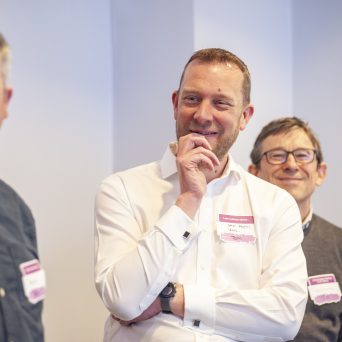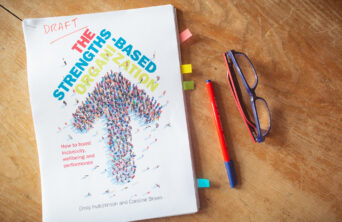Why should senior male leaders care about inclusion? Because when they lead differently, the whole system shifts.
Boston Consulting Group found that when men are actively involved in gender diversity efforts, 96% of companies report progress. When they’re not? Just 30%. The message is clear: inclusion isn’t a side project — it’s a leadership imperative.
At Apply Psychology, we’ve spent years supporting women’s progression through coaching. But real, systemic change requires more than supporting underrepresented groups — it demands that those with influence step up. And in most organisations, especially in STEM, that means senior men.
So we asked: What if we supported men to lead differently — for themselves, their teams, and the culture they shape?
The Experiment
Over 12 months, seven senior leaders joined a pioneering programme. They met monthly in facilitated group sessions, supported by three psychologists (two male, one female), and each had a deep-dive one-to-one coaching session.
The goals were ambitious:
- Deepen understanding of diversity and inclusion.
- Build emotional intelligence — self-awareness, empathy, and relational leadership.
- Drive organisational impact through personal and systemic change.
What Happened
- It was uncomfortable. Leaders were challenged to reflect, confront assumptions, and sit with ambiguity. That discomfort became a catalyst for growth.
- It was slow and subtle. Some wanted immediate, visible results. But the real change was internal — a shift in mindset, behaviour, and relationships.
- It was powerful. The format — regular sessions, diverse facilitators, and a men-only space — created trust and openness. Engaging with women and others outside the group was also key.
The Impact
On Self:
- Every participant reported increased emotional intelligence.
- Greater awareness of their own emotions and behaviours.
- Deeper understanding of others’ experiences and perspectives.
On Behaviour:
- More inclusive decision-making.
- Intentional team diversity.
- Active listening and coaching of women.
- Curiosity about cultural differences.
- More open emotional expression.
- Daily engagement with diverse viewpoints.
On the Organisation:
- Early signs of cultural ripple effects.
- Systemic change ideas were generated — now the challenge is embedding them.
What We Learned
- Men need space to reflect, connect, and grow — together.
- Leadership development must go beyond skills to identity and impact.
- Change takes time. A longer programme is needed to truly shift systems.
In Conclusion
This wasn’t just a programme. It was a leadership experiment — and a success. These men didn’t just learn about inclusion. They lived it. And in doing so, they began to reshape the culture around them.
If you’re a senior leader wondering how to leave a legacy that matters — this is your invitation.
Lead differently. Start now.




